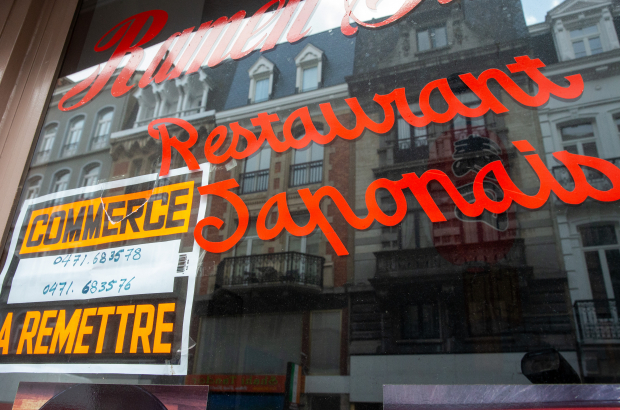- Daily & Weekly newsletters
- Buy & download The Bulletin
- Comment on our articles
Restaurateurs fear for the future in 'ghost town' Brussels
Restaurateurs in the centre of Brussels are increasingly concerned about the future of their businesses with many describing the previously busy areas in which they operate as “ghost towns”. The ongoing pandemic and associated restrictions have drastically reduced the number of people dining out in the capital’s usually bustling eateries.
Several businesses such as the famous A la Mort Subite bar have even temporarily closed their doors. "Brussels is a city of bureaucrats and they now work from home,” said one of the bar’s employees. “As a result, there are only two or three customers here per day, too few to run profitably. That's why we have closed for a week. I notice that there are no people anywhere. This place looks like a ghost town."
Establishments that are still open are struggling to attract any customers and many stand empty. The businesses on and around the Grand-Place, which usually thrive on custom mainly from foreign tourists, have been particularly affected.
"January and February are calm months anyway," says one employee from subterranean restaurant 't Kelderke, an establishment on the Grand-Place that relies heavily on group bookings "But now, due to remote working, the New Year's lunches and dinners that companies offer to employees or customers are also disappearing. Since Sunday, very few people have been coming here, hardly anyone any more. It is worse than last year."
Kevin Vanlancker, who runs two restaurants, Aux Armes de Bruxelles and Chez Léon, in the Ilot Sacré district adjacent to the Grand-Place, agrees. "It's catastrophic," he says. "In the kitchen now only two people work instead of eight, but we remain open." He too has to rely mainly on foreign visitors – both tourists and those travelling for business – and they are staying away due to the spread of the new omicron variant.
It is not only restaurants in the Ilot Sacré and Grand-Place areas that have been affected. On the other side of Boulevard Anspach, businesses are also quiet. The omicron wave, the associated remote working and also inflation are given as reasons for this. But the Winter Wonders Christmas market, which is a real crowd-puller but had to partially close early this year, also played a role.
"Normally there are so many people at the Christmas market that people flee the crowds and end up with us," says Sadek Al Omari from Maha, a restaurant on the Rue de Flandre, which runs next to the Place Sainte-Catherine. "This year that was not the case."
Al Omari had to reduce the budget for employees, mainly students, by 50%, and does not have a positive view in regard to the coming months. "Normally, the top months of November and December serve to bridge the quieter months of January and February. But this time they were not good months. After the non-European tourists stopped coming, we have now also lost the European tourists, resulting in a loss of turnover of 50%."
Nevertheless, Maha remains open as long as it is allowed and possible. "Although I really hope that this is now the last wave."
Others share this hope. Cédric Gérard, manager of the Greenwich and the Halles Saint-Géry, knows 25 people who are currently in quarantine due to the current omicron wave.
"This includes an employee of my restaurant Bobbi Bao at Bourse, which has been forced to close. So, I think the city is empty because just about everyone is in quarantine," he says with a wink. "But the good news is that no one has severe symptoms. So, the wave is high but not aggressive, so we will soon have herd immunity. And maybe get rid of it after this," he hopes.


















